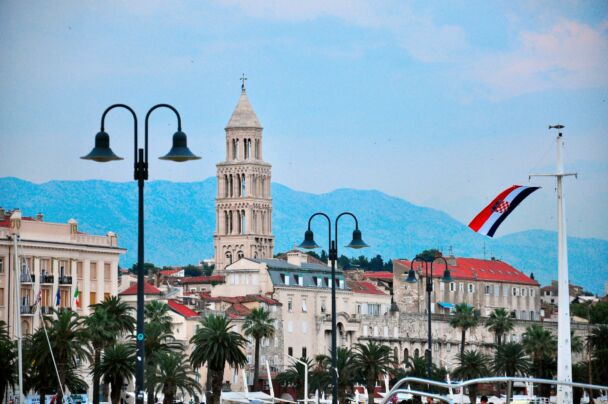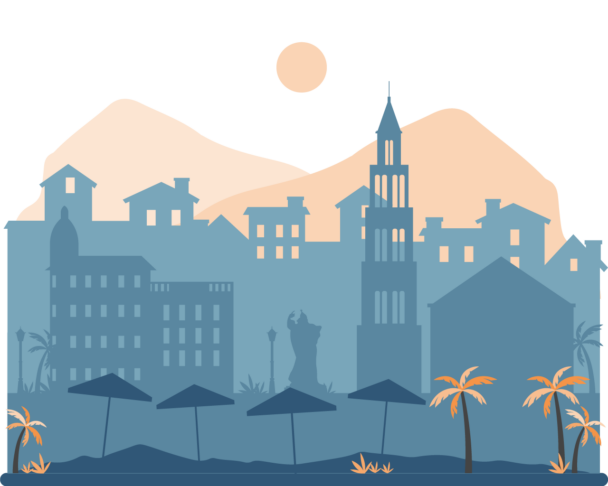Description
What can we do to improve conceptual learning, deeper engagement with ideas, and build the capacity to confront complex 21st-century challenges in today’s education system? Well, we must go beyond the classroom where authentic communication and active learning truly happen.
Museums, natural science centers, or art galleries are no longer places where people passively and silently observe. Rather, they prompt visitors’ curiosity and encourage them to ask questions while looking at unknown objects.
What more natural and meaningful way of learning than through experiencing a new learning environment, developing critical thinking, and learning by doing to develop higher-level thinking skills and creativity?
The course will clarify how study visits and contemporary exhibition spaces can promote curricular and extracurricular learning.
The participants will visit several museums in the area of Split: the Ethnographic Museum, the Maritime Museum, the Meštrović Gallery, and the Hidden Dalmatia Center.
In each of the institutions, the participants will see exhibitions, get to know how the institution collaborates with schools and teachers, and take part in workshops run by professional pedagogues.
Participants will also exploit the course as a social experience for networking with colleagues from all around Europe. They will learn how to stay sustainable while their own and their students’ Erasmus mobilities, and how to use and support local life and culture with their Erasmus projects either with the participants or in collaboration with institutions in their own communities.
By the end of the course, the participants will know how to blend informal learning spaces and their formal classrooms to foster 21st-century skills and active learning. Moreover, they will understand how new technologies can help preserve but also experience history and culture.
Finally, they will acquire deeper knowledge of Croatian cultural and natural heritage, and sustainable development.
What is included
Learning outcomes
The course will help the participants to:
- Experience Croatian cultural, historical, and natural heritage;
- Use different types of heritage to foster interdisciplinary teaching and learning;
- Learn how to experience new cultures in a sustainable way;
- Understand museum pedagogy and experiential learning;
- Understand active learning through curiosity and asking questions;
- Learn how to use new technologies to preserve cultural and natural heritage;
- Learn about ecotourism and sustainable mobility.
Tentative schedule
Day 1 – Introduction to the course
- Introduction to the course, the school, and the external week activities;
- Icebreaker activities;
- Presentations of the participants’ schools;
- Types of heritage, protected sights, and nature;
- Sustainable goals in mobilities and the concept of ecotourism;
- Learning outside of classrooms;
- Learning diary.
Day 2 – Ethnographic museum
- Ethnographic museum – visit;
- Workshop: creating jewelry or coloring bags;
- Digital tour of the city – how to use digital tools to discover a place – outdoor activity.
Day 3 – Maritime museum
- Maritime museum – visit;
- Ships, submarines, and life under the sea;
- VR technology for teaching and learning.
Day 4 – Hidden Dalmatia
- Hidden Dalmatia Center in Dugopolje – visit;
- Presentation of natural heritage (plants and animals, endemic species);
- New technologies used for the presentation and preservation of natural heritage;
- Workshop: creating a soap.
Day 5 – Meštrović Gallery and Marjan forest park
- Meštrović Gallery – visit;
- Exhibition and museum pedagogy presentation;
- Workshop: creating a picture or a statue inspired by the work of Ivan Meštrović;
- Marjan forest park visit – natural and historical heritage of the city.
Day 6 – Course closure and cultural activities
- Wrap–up;
- Presenting diaries, project ideas, and implementation;
- Award of the Certificate of Attendance;
- Excursion and other external cultural activities.

